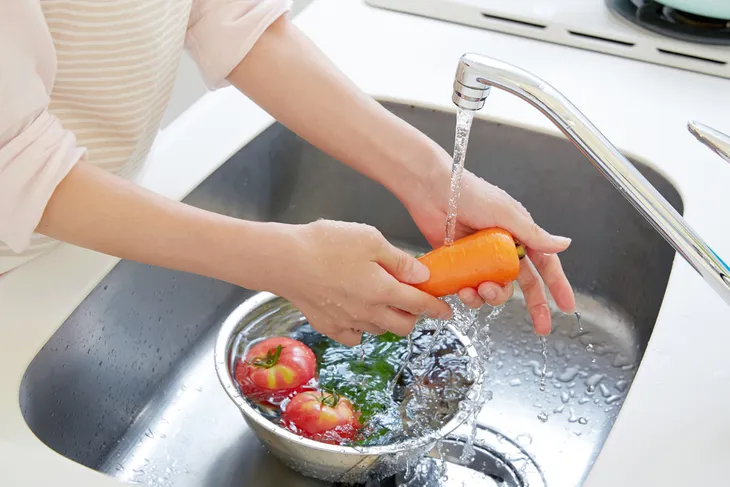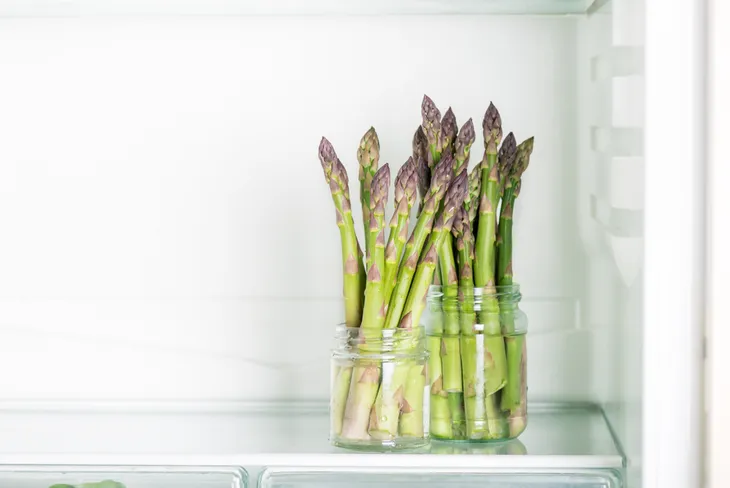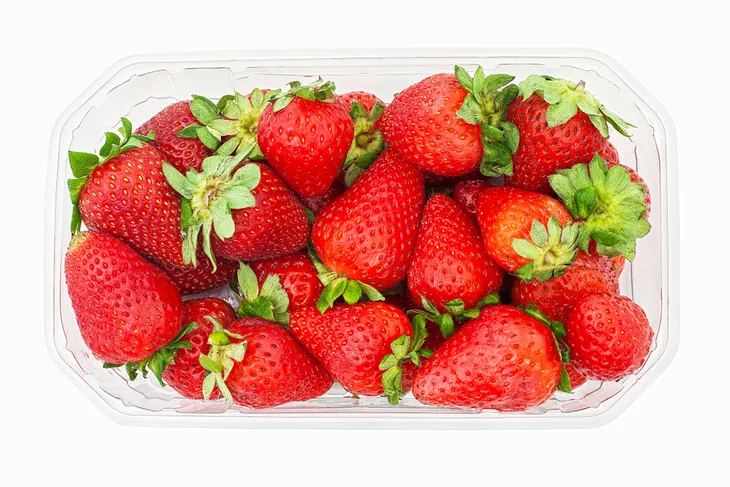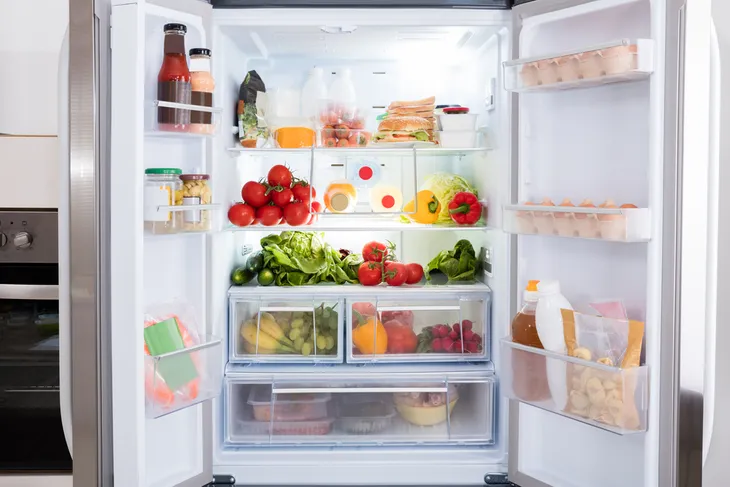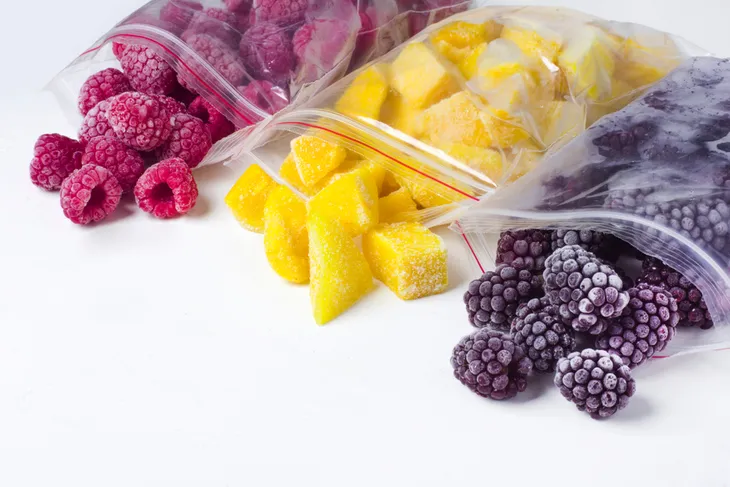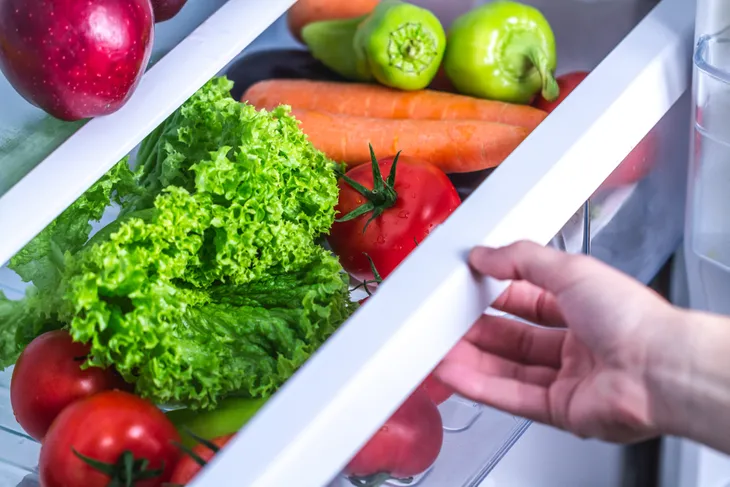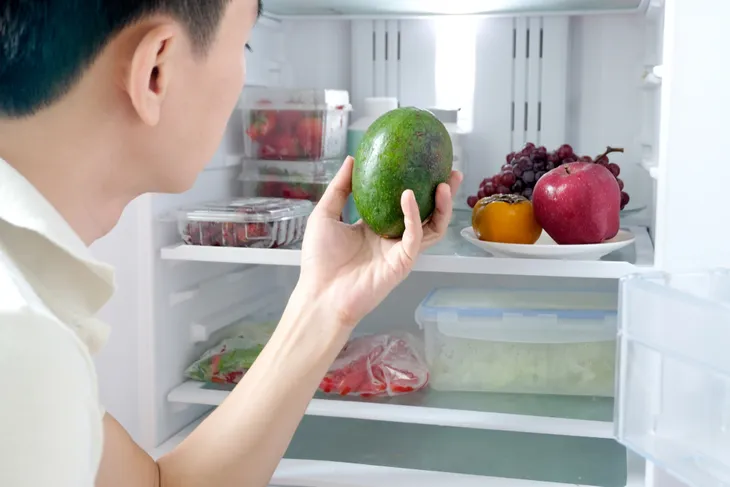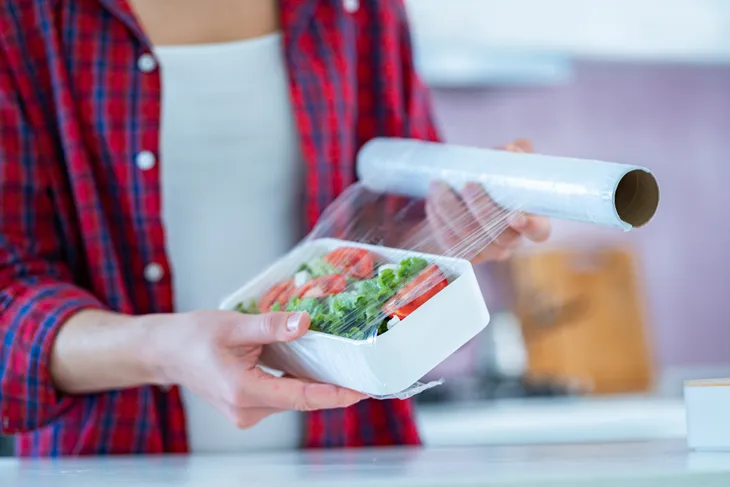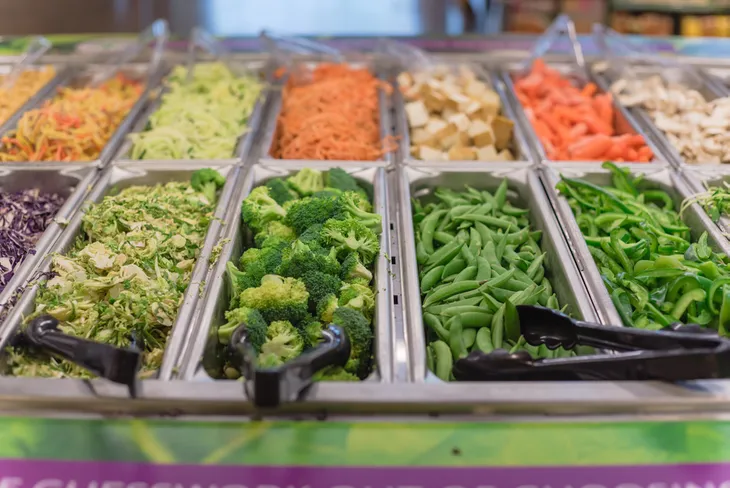It’s a good idea to make your food go as far as possible at any time, to save money and produce less waste. But what about when you’re limited in the number of times you can visit a grocery store, or you’re financially strained and need to be more careful with your resources?
The trick is keeping your perishables – well, not perished – and to do that, you have to rethink some of your storage methods. But storage is not the only thing that needs to be considered. Correct planning can stretch your food for days longer, which means fewer trips to the store and less spending. Read on for some tips we’ve cooked up…
Want diet & nutrition content delivered straight to your inbox? Sign up for our exclusive diet & nutrition newsletter!
Don’t Wash Produce Right Before Refrigerating It
Insider notes that although your intentions may be good, putting produce in the fridge that you’ve just washed can actually reduce its lifespan quite a bit. It notes that by adding moisture and then putting it in cold storage, you’re “speeding up its decaying process.”
On the same note, other sources explain that you should be storing your produce dry – while a bit of moisture isn’t bad to keep it “perky,” says BonAppetit.com, storing it wet can lead to moldiness and mushiness, both unwanted characteristics of veggies. If you’ve washed some greens to use for dinner, just remember to dry them off before putting them back into the produce drawer.
Store Some Produce Differently
Not all produce should be treated the same when it comes to putting it in the fridge. While we’ve just told you that you should keep your produce (mostly) dry when storing it in the cold, there are some exceptions to the rule.
BonAppetit.com notes that the ends of asparagus should be trimmed “like a bouquet of fresh flowers,” and then put into a glass of water in the fridge until you’re ready to use them. Whole carrots can be kept firm by storing them in a covered container of water, and the same applies to celery stalks cut in half, it adds, noting you should change the water every 2-3 days.
Use a New Solution To Store Berries
You’ve bought strawberries and raspberries from the grocery store, but they’ve already started losing the appeal they had when you grabbed them off the shelf. But you can make your berries go longer with a simple solution – literally.
Buzzfeed suggests mixing 1-part vinegar (either apple cider or white) with 10-parts water in a bowl. ” Swirl the berries” in the diluted vinegar mixture, and then drain it and rinse before putting them into the fridge. The source says this will help raspberries last a week (or more), and strawberries may survive for 2-weeks before going off.
Make Sure Your Food Is Visible In Storage
We all have those containers of food that get shuffled to the back of the fridge and forgotten about, which causes the otherwise yummy portions to become inedible. But by changing the way you arrange your food in the fridge, you can make it more accessible and more likely to get used.
Bustle says that to help with this process, you should only use drawers for “bulk items” that have a longer life, while anything that should be eaten fresh should be at eye level. Be mindful about what you’re pushing to the back of the fridge when you’re adding new items.
Put a Freeze On Mold
Your freezer is your friend when it comes to making your supply last longer. For example, you can actually put produce in the freezer when it hits its desired ripeness, explains BonAppetit.com. You can cut it into pieces and freeze it as a single layer on parchment until solid, and then put the frozen pieces into a resealable bag, it adds.
Meanwhile, there are some other items you can freeze that you might not have considered. For example, cbs4local.com explains that you can extend the life of common staples like milk, cheese, eggs, and bread by putting them in the freezer. Milk, cheese and pre-sliced bread can last up to 6-months while they’re frozen, and eggs can last up to a year in the freezer. But for the latter, “Make sure they are whisked together and placed in an airtight container beforehand,” it notes.
Make Use Of The ‘Bits’
Bustle says you should have some “everything goes” recipes on hand to make use of all the odd bits leftover in your fridge. For example, the source suggests making “egg bakes” (that are similar to quiche without the crust) to use up vegetables and ham.
It also says that you can also throw what you’ve got into a pot to make a soup or casserole, which is especially comforting in winter but can be done anytime. You never know what kind of meal you can invent by making use of whatever you’ve got in storage.
You Gotta Keep ‘Em Separated
Sorry if the 90’s song lyrics reference is lost on you, but the point is that you should store certain foods apart to maximize their period of freshness – namely produce, says Bustle. The source explains that certain fruits and vegetables (including apples and tomatoes) produce ethylene gas, which can actually speed up the ripening process of other fruits and veggies such as berries.
Lettuce is also sensitive to gaseous produce, it adds. On the flipside, if you want to ripen some produce quicker, stick it beside your apples. Buzzfeed adds that you can actually buy an inexpensive ethylene gas absorber to soak up the emissions from certain produce, which will help your fruits and veggies to go farther.
The Scoop on Keeping Avocados Fresh
Who doesn’t love a little avocado toast? Okay, well, a lot of people do – not just millennials. But many people make the mistake of putting avocado in the fridge before it’s ripened, which will actually shorten its lifespan.
Insider notes you should store these versatile fruits on the countertop until they’re ripe (you’ll know they’re ripe when they will yield to gentle pressure) and then put them in the fridge. If your avocados get over-ripe, don’t fret – it’s a good opportunity to make guacamole, which can be doused with cooking spray before refrigerating to last longer, according to Buzzfeed.
Extend Your Salad
It happens to the best of us – you make a fresh salad for dinner, but not all of it gets eaten. Many times, the remaining salad gets scooped into compost, or goes off in the fridge while you consider when to eat it again. However, Lifehacker says there’s a way you can keep your already-made salad crisp and fresh for up to weeks at a time.
When prepping, use a salad mixture to get rid of excess moisture from the lettuce. Then put it into a sizable bowl, and drape 1 or 2-sheets of paper towel over the top of it to prevent moisture from settling on the leaves before covering it all with plastic wrap. It suggests to stir the salad after each serving, and to replace the paper towel when it starts to look like wilted lettuce.
Don’t Buy More Than You Need
Just like you shouldn’t hoard toilet paper, you shouldn’t stock up on perishable food items that won’t easily be used up within a reasonable time frame. After all, that’s throwing money down the toilet (in both cases), so only buy what your family can use in a week or so between grocery store visits.
Bustle suggests instead of buying whole produce, make use of salad bars when you only need a bit of a certain vegetable. It adds that buying produce in bulk to save a few pennies won’t do much good if the food becomes inedible. “Six heads of lettuce do nobody any good when they rot in the crisper drawer,” it notes.

